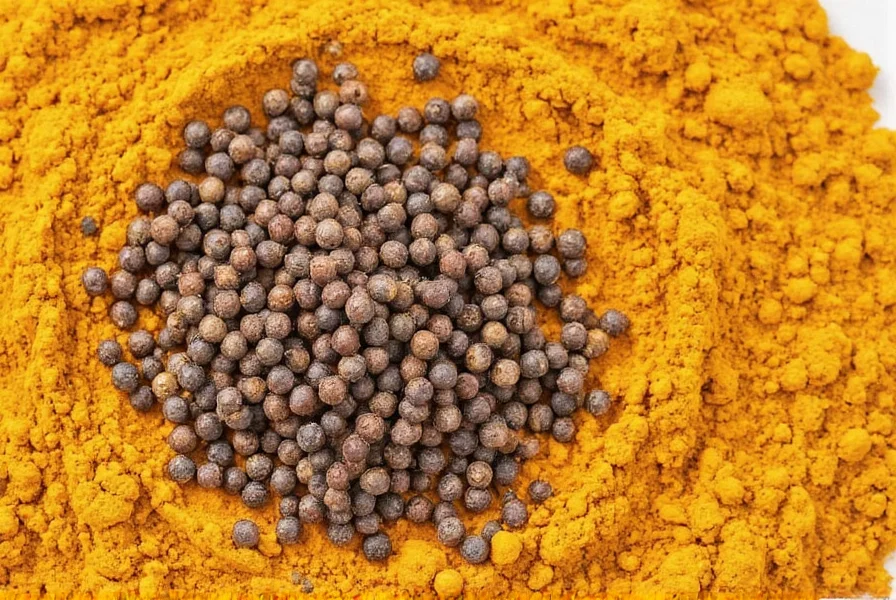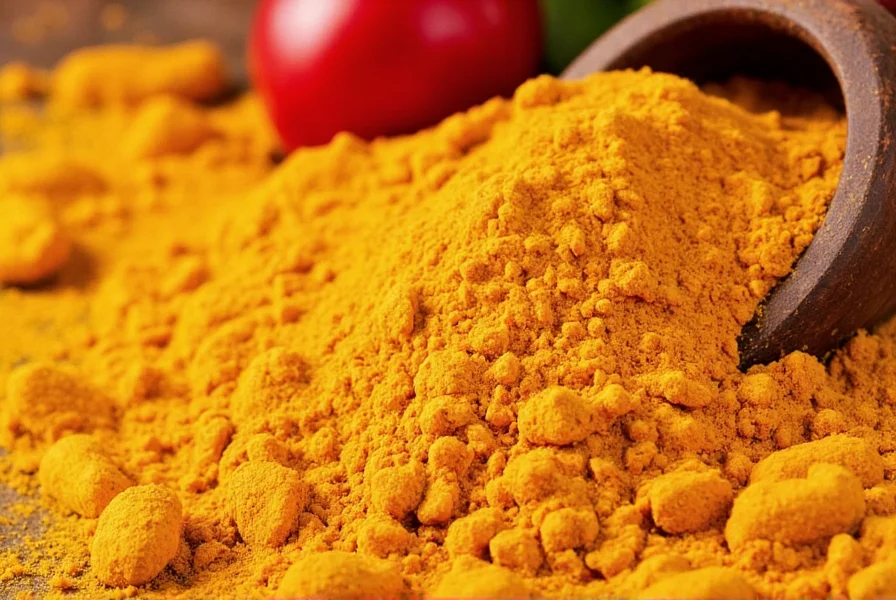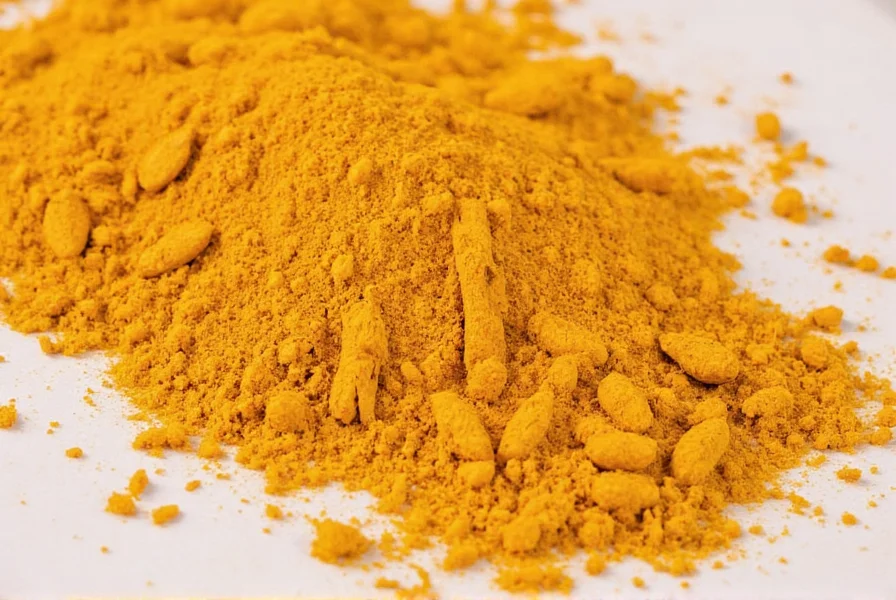For decades, traditional medicine systems have paired turmeric with black pepper, but modern science now confirms this powerful synergy. This evidence-based guide explores exactly how this combination works, optimal usage methods, and what research says about maximizing turmeric's potential health benefits.
The Science Behind Turmeric and Black Pepper
Turmeric contains curcumin, its primary active compound responsible for anti-inflammatory and antioxidant properties. However, curcumin faces significant bioavailability challenges—when consumed alone, it's poorly absorbed, rapidly metabolized, and quickly eliminated from the body. Studies show that as little as 1% of consumed curcumin enters the bloodstream when taken without an absorption enhancer.
Black pepper contains piperine (5-9% by weight), a bioactive alkaloid that inhibits certain digestive enzymes and slows the breakdown of curcumin in the liver and intestinal wall. A landmark 1998 study published in Planta Medica demonstrated that combining 20mg of piperine with 2g of curcumin increased curcumin bioavailability by 2,000% in human subjects.

Optimal Turmeric with Pepper Ratios and Methods
Research indicates specific ratios maximize absorption without causing digestive discomfort:
| Curcumin Amount | Recommended Piperine | Absorption Increase | Best Consumption Method |
|---|---|---|---|
| 500mg | 5-10mg | Up to 2,000% | With healthy fats (olive oil, avocado) |
| 1,000mg | 10-15mg | Up to 1,500% | Cooked in warm dishes |
| 2,000mg | 20mg | Up to 1,000% | With meals containing healthy fats |
For culinary use, adding ¼ teaspoon of freshly ground black pepper to turmeric-containing dishes provides sufficient piperine. When using supplements, look for products specifying both curcumin and piperine content—many quality formulations use a 100:1 ratio (100mg curcumin to 1mg piperine).
Health Benefits of the Enhanced Combination
The turmeric with pepper combination amplifies several evidence-backed health benefits:
- Enhanced anti-inflammatory effects: The increased curcumin bioavailability allows for more effective reduction of inflammatory markers like NF-kB and COX-2
- Improved antioxidant capacity: Higher blood concentrations of curcumin provide stronger protection against oxidative stress
- Joint health support: Clinical trials show significantly better outcomes for osteoarthritis symptoms when using curcumin with piperine versus curcumin alone
- Cognitive benefits: Increased curcumin availability may support brain-derived neurotrophic factor (BDNF) production
A 2020 meta-analysis in Nutrients concluded that curcumin formulations with piperine demonstrated 2.3 times greater efficacy in reducing inflammatory markers compared to standard curcumin supplements.
Practical Considerations and Limitations
While the turmeric with black pepper combination offers significant advantages, several important considerations exist:
- Digestive sensitivity: Some individuals experience mild gastrointestinal discomfort with higher piperine doses (above 20mg)
- Medication interactions: Piperine may affect how the body processes certain medications including blood thinners and antidepressants
- Quality matters: Not all turmeric supplements contain sufficient curcuminoids (look for 95% curcuminoid extracts)
- Realistic expectations: While absorption improves dramatically, curcumin still has limited systemic distribution
For optimal results, combine turmeric with both black pepper and healthy fats. Curcumin is fat-soluble, so consuming it with olive oil, avocado, or coconut milk further enhances absorption beyond what piperine alone provides. The "golden milk" tradition of Ayurvedic medicine—combining turmeric, black pepper, and coconut milk—demonstrates this multi-factor absorption approach.
Evidence-Based Usage Recommendations
Based on current research, these usage guidelines maximize the turmeric with pepper benefits while minimizing potential issues:
- For general wellness: 500mg curcumin with 5mg piperine daily
- For inflammatory conditions: 1,000-1,500mg curcumin with 10-15mg piperine daily
- Divide doses: Take with both morning and evening meals for sustained blood levels
- Avoid taking on empty stomach to prevent potential digestive upset
- Choose supplements with third-party testing for curcuminoid content
Remember that consistency matters more than high single doses. Regular daily consumption maintains steady curcumin levels in the bloodstream, whereas sporadic high doses lead to peaks and valleys in bioavailability.

Frequently Asked Questions
How much black pepper should I take with turmeric?
Research shows that 1/4 teaspoon (approximately 5mg) of freshly ground black pepper per 500mg of turmeric provides optimal absorption enhancement. Higher amounts don't significantly increase benefits and may cause digestive discomfort for some individuals.
Can I use white pepper instead of black pepper with turmeric?
No, white pepper contains significantly less piperine than black pepper (only about 1-2% compared to black pepper's 5-9%). Black pepper is specifically recommended for enhancing turmeric absorption due to its higher piperine content.
How long does it take to feel benefits from turmeric with pepper?
Most research shows noticeable effects within 4-8 weeks of consistent daily use. Inflammation markers typically begin decreasing within 2-4 weeks, while more systemic benefits may take 6-12 weeks of regular consumption to become apparent.
Does cooking destroy the benefits of turmeric with pepper?
No, moderate cooking actually enhances curcumin absorption. Heating turmeric in oil or liquid increases its solubility, and piperine remains stable at typical cooking temperatures. Avoid prolonged high-heat exposure (above 300°F/150°C) which can degrade curcumin over time.
Can I take turmeric with pepper if I have gallbladder issues?
Individuals with gallbladder problems or bile duct obstruction should consult a healthcare provider before using turmeric supplements. Curcumin may stimulate bile production, which could exacerbate certain gallbladder conditions, especially at higher doses.











 浙公网安备
33010002000092号
浙公网安备
33010002000092号 浙B2-20120091-4
浙B2-20120091-4